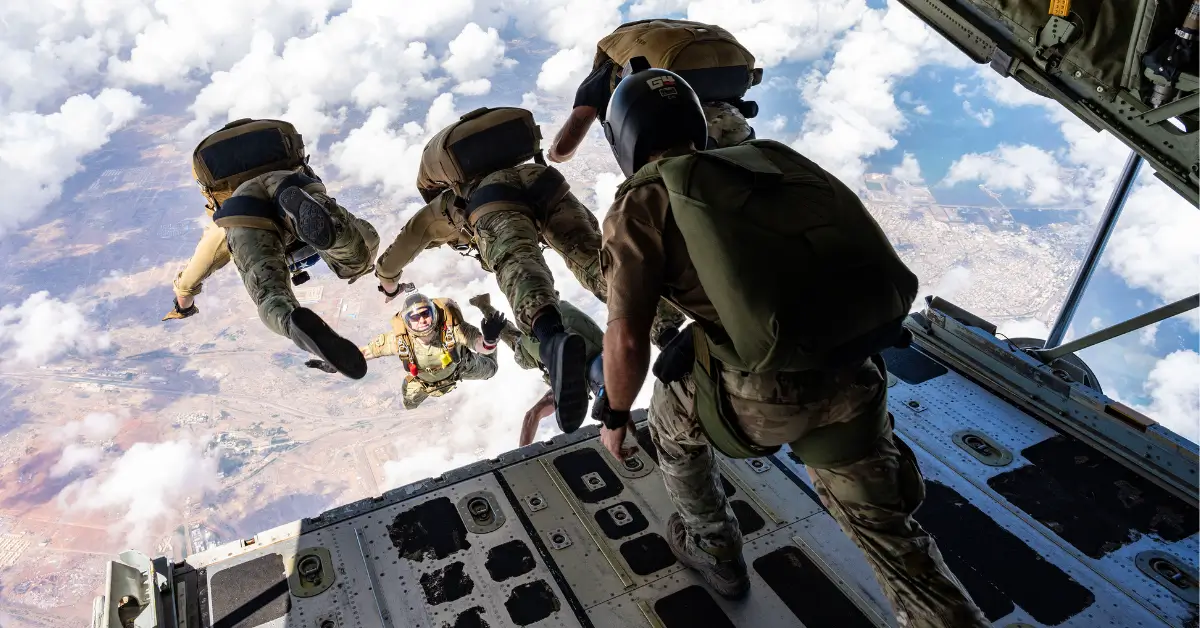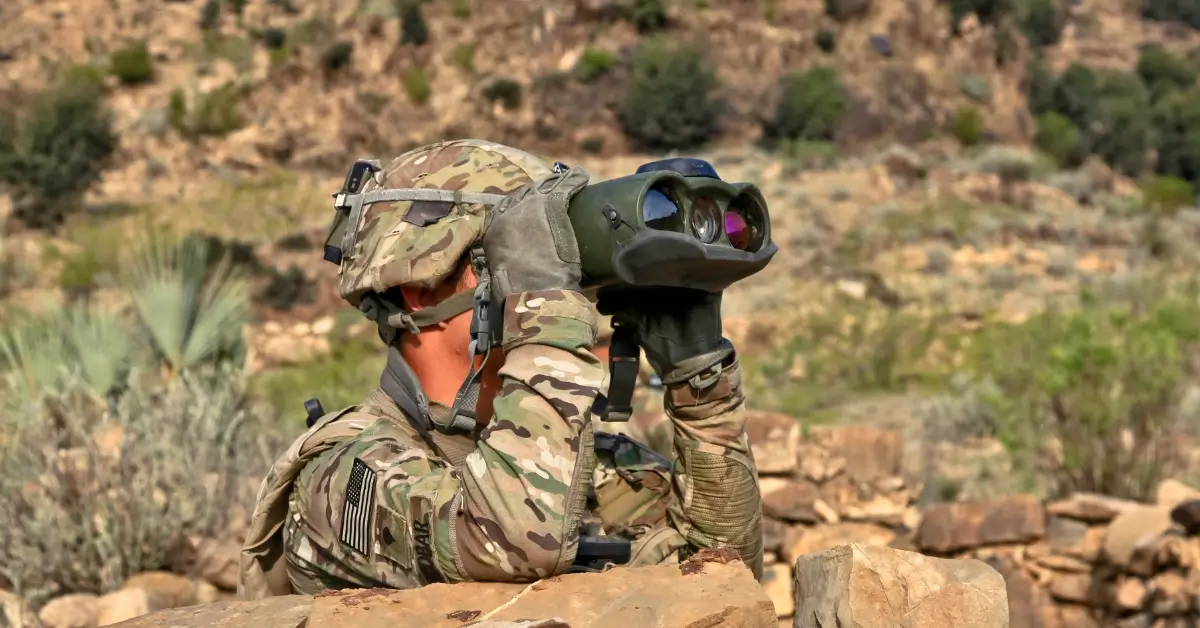Gone are the days of outdated training manuals. AI, cyber warfare, and rapid technological advancements shape today’s battlefield. Traditional tactics no longer suffice in these evolving landscapes – they spell disaster. Continuous training has become imperative for militaries worldwide. This article delves into why ongoing education and skill development are no longer optional but essential for every soldier to remain alert, adaptable, and prepared for future challenges.
The US invests 15% of its budget in core readiness and readiness enablers, including training. This significant commitment underscores the country’s dedication to preparing its military personnel for the challenges of modern warfare and acknowledges the importance of continuous training and readiness in the ever-evolving global landscape.
The Technological Imperative
The pace of technological change in military operations is unprecedented. From advanced cyber capabilities to AI-powered decision-making tools, new technologies are constantly reshaping the battlefield. The global military simulation and virtual training market has already surpassed $14 billion and is projected to grow at a compound annual growth rate (CAGR) of 4.7% from 2023 to 2030. This growth highlights the increasing reliance on cutting-edge training solutions to keep personnel up-to-date with the latest advancements.
Adapting to Evolving Threats
The nature of warfare is evolving, with modern conflicts often involving complex multi-domain operations. Military forces must adapt their training methodologies to prepare for these new challenges. The need for continual transformation in warfighting capabilities and human performance training becomes apparent as the battlefield becomes more interconnected.
The Challenge of Skill Retention
One key challenge in military training is skill retention, especially for lifesaving and technical specialities. Military personnel often rotate through various roles, which can lead to skill degradation if they are not continuously updated. For instance, non-commissioned officers (NCOs) in technical fields may find their skills outdated after working in non-technical roles. Keeping these leaders proficient in their specialities requires ongoing training and education.
Innovative Training Solutions
To address these challenges, military forces worldwide are embracing innovative training solutions:
Extended Reality (XR) Technology: XR, which includes augmented, virtual, and mixed reality, creates immersive training environments that mirror complex battlefield systems. This technology allows military personnel to train in realistic, interconnected environments, enhancing their readiness for real-world operations.
Simulators for Real-Life Practice: Advanced simulators, such as flight simulators and cyber warfare training systems, provide realistic practice scenarios without the risks associated with live exercises. These tools help soldiers develop critical skills in a controlled environment. Additionally, modern shooting ranges with moving targets simulate dynamic combat scenarios, enhancing soldiers’ ability to engage targets that are in motion. Incorporating drones as moving targets allows personnel to practice engaging aerial threats, improving their skills in handling modern warfare challenges where drones play a significant role.
AI-Powered Adaptive Learning: Artificial intelligence is being leveraged to create personalised training programs that adapt to individual learning styles and performance metrics. This approach ensures that military personnel receive the most effective training tailored to their needs.
The Human Element
While technology plays a crucial role, the human element remains paramount. Effective training programs must focus on developing military personnel’s physical, cognitive, emotional, and social capabilities. This holistic approach ensures that soldiers are technically proficient, mentally resilient, and capable of making sound decisions under pressure.
Challenges
Budget Constraints: Continuous training programs can be expensive, requiring significant investment in technology, infrastructure, and personnel.
Resistance to Change: Implementing new training methodologies can meet resistance from personnel accustomed to traditional training methods.
Logistical Issues: Coordinating continuous training programs across diverse locations and ensuring accessibility for all personnel can be complex.
Skill Assessment: Accurately assessing the retention and application of skills over time can be challenging, requiring robust evaluation mechanisms.
Solutions
Prioritise Investment: To secure funding, highlight the long-term cost savings and operational benefits of continuous training. Investing in scalable technologies like XR and AI can also mitigate costs.
Change Management: Implement comprehensive change management strategies, including leadership support, to foster a culture of continuous learning.
Decentralised Training Platforms: Utilise online platforms and modular training units that can be accessed remotely, ensuring consistent training opportunities regardless of location.
Regular Assessments: Develop and implement regular skill assessments and feedback loops to ensure training effectiveness and address gaps promptly.
Future Trends
Emerging Technologies
- Quantum Computing: Quantum technologies could revolutionise military training by enabling complex simulations and faster data processing, offering unprecedented training depth and efficiency.
- Next-Generation AI: Advances in AI will further personalise training experiences, providing real-time feedback and adapting to evolving threats and individual learning needs.
- Biometric Data Integration: Incorporating biometric data to monitor physical and mental states during training can enhance training programs’ effectiveness and tailor them to individual needs.
Global Training Collaborations
- Increased international collaboration on military training initiatives can facilitate the sharing of best practices and innovative approaches, fostering a more adaptable and resilient global military force.
Continuous Learning Initiatives
Credentialing Programs: Many military organisations offer credentialing programs that align with specific specialities and promotion requirements. These programs provide a pathway for personnel to gain recognised qualifications and stay current with industry standards.
Adjunct Instructor Models: Some military forces are experimenting with adjunct instructor models to bring in subject matter experts who can provide up-to-date training on rapidly changing technologies and tactics.
Real-Time Curriculum Updates: Continuous updates to training curricula ensure that instruction remains current with the latest developments. This approach allows trainers to incorporate new information and technologies as they emerge, keeping training relevant and effective.
Achieve Mission Readiness with MSS Defence
The landscape of military operations is changing at an unprecedented rate, driven by technological advancements and evolving global threats. Continuous training is no longer a luxury— it’s a necessity for maintaining military readiness and effectiveness. By embracing innovative training solutions and fostering a culture of lifelong learning, military forces worldwide can ensure that their personnel are always prepared for the challenges of tomorrow’s battlefields. Studies show that militaries investing a significant portion of their budget in continuous training programs demonstrate a higher operational readiness rate than those with lower investment levels.
At MSS Defence, we combine our deep expertise in cutting-edge military technology with our best-in-class, experienced training team. Our experts are knowledgeable in the latest technological advancements and warfare strategies, ensuring that your personnel are equipped with state-of-the-art skills xand knowledge. Our seasoned veterans and experts team delivers tailored training programs to enhance mission readiness and operational effectiveness. Empower your forces with the tools and skills to succeed on the modern battlefield. Discover more about MSS Defence’s training programs here or contact us for tailored advice.
Ota yhteyttä



